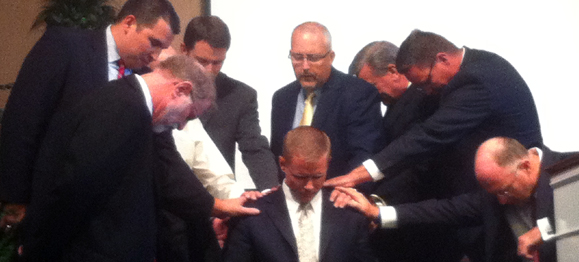
Romans 11:25 "For I do not want you, brethren, to be uninformed of this mystery—so that you will not be wise in your own estimation—that a partial hardening has happened to Israel until the fullness of the Gentiles has come in."
Introduction:
In Romans 11, we find Paul illustrating God's plan of salvation for the nations and Israel by way of an olive tree. Such an analogy is intentional on Paul's part to demonstrate how God intends to save a multitude of people from the nations (i.e gentiles) and a multitude of Jews at Christ's return. In today's post we want to explore some of the background of this analogy to discover how to best interpret Paul's overall argument of Romans 11 with respect to the olive tree.
Olive trees in the Mediterranean world, ancient Israel and the Bible
Such a tree would had been known to anyone in the Mediterranean world (Spain, Italy, Northern Africa) and those who lived in Israel.

Baker's Encyclopedia notes the following about the oil produced from olive trees:
"Oil was symbolically associated with joy, festivity, ceremony, honor, light, and health (both spiritual and physical), while its absence spelled sorrow (Joel 1:10), and the withdrawal of all that is good in life."
Olive trees and olives in general came to be used quite frequently in scripture to refer to the nation of Israel. The first mention of anything olive is found in Genesis 8:11 to refer to the olive branch given to Noah by the dove to indicate the lessening of the flood waters of God's wrath on the earth. Olive trees and their fruit have this fundamental meaning of God's favor, redemption and the richness of his promises.
For sake of space and focus, I won't list the scriptures associated with the following uses, but olive oil extracted from the fruits of such trees was used in: lighting lamps in homes, the temple, anointing of priests, kings and prophets, medicine, bathing oils and incense. Such wide variety of uses made olive trees and their olives vary valuable to both Jews and the surrounding nations.
The specific meaning of olive trees and olives that is pertinent to our study, has quite a bit of reference in the Old Testament, thus meriting mention of the key texts. We find olive trees or olives to refer specifically to God's chosen people - Israel - and its land in such texts as Judges 9:8-9; 2 Kings 18:32; Ps 52:8; 128:3; Is 24:13; Jeremiah 11:16; Hosea 14:6; Zech 4:11-12. Jesus' final sermon addressing great themes of prophecy, His second coming and Israel occurs in the context of the Mount of Olives (Mt 24:3; Mk 13:3; Lk 19:29,37; 21:37).
The theological significance of the grafting of branches and the olive tree itself
In Paul's analogy of the olive tree signifying God's plan for the nations and Israel, we find references to the grafting of branches into the olive tree. Paul wastes no time in associating the grafted-in branches as being the gentiles and the original "natural" branches representing the Jews. We read the following in Romans 11:16-21
"If the first piece of dough is holy, the lump is also; and if the root is holy, the branches are too. 17 But if some of the branches were broken off, and you, being a wild olive, were grafted in among them and became partaker with them of the rich root of the olive tree, 18 do not be arrogant toward the branches; but if you are arrogant, remember that it is not you who supports the root, but the root supports you. 19 You will say then, “Branches were broken off so that I might be grafted in.” 20 Quite right, they were broken off for their unbelief, but you stand by your faith. Do not be conceited, but fear; 21 for if God did not spare the natural branches, He will not spare you, either."
So what is the significance of taking branches from a wild olive tree and grafting them into the cultivate olive tree that represents God's plan of salvation for both Jews and the other nations? Easton's Bible Dictionary explains:
"The “olive-tree, wild by nature” (Rom. 11:24), is the shoot or cutting of the good olive-tree which, left ungrafted, grows up to be a “wild olive.” In Rom. 11:17 Paul refers to the practice of grafting shoots of the wild olive into a “good” olive which has become unfruitful."
God desires not only a redeemed people, but a redeemed people that are bearing fruit. Similar analogies of fruit-bearing, plants and God's redemptive purposes are found in such Old Testament passages as Isaiah 5 and Jeremiah 11 and then John 15:2, which states: "Every branch in Me that does not bear fruit, He takes away; and every branch that bears fruit, He prunes it so that it may bear more fruit." The Easton Bible Dictionary continues on by noting:
"By such a process the sap of the good olive, by pervading the branch which is “grafted in,” makes it a good branch, bearing good olives. Thus the Gentiles, being a “wild olive,” but now “graffed in,” yield fruit, but only through the sap of the tree into which they have been grafted. This is a process “contrary to nature” (11:24)."
Thus the original or "natural branches" were not bearing fruit. So by removing them, God wanted to take branches from a wild tree (the nations) and graft them into the healthy root and trunk - which I would propose is Christ Himself (again see similar analogies in John 15). Thomas Robinson's "Studies In Romans - Expository And Homiletical", confirms this observation of the olive tree of Romans 11 being no less than Christ Himself:
"Good Olive Tree. Visible church with all its blessings. Place in Christ's church an inestimable privilege. Yet not sufficient of itself to secure salvation. Outward union with the church brings privilege, not pardon. The only tree in which salvation is certain is the true vine, John xv. 1."
Author Svetlana Khobnya notes in his article on Romans 11, "The Root In Paul's Olive Tree Metaphor (Romans 11:16-24)", volume 64:2 Tyndale Bulletin, pg 265:
"The proposal, that he uses the olive tree and the whole process of its rejuvenation to draw a picture of the restoration of Israel and the addition of the Gentiles into God’s people on the basis of God’s fulfilment of his promises in Christ, coheres with Paul’s overarching theological convictions. On this reading, Christ is the very root of the tree."
Final Applications
Today we looked more closely at Paul's metaphor of the olive tree in Romans 11. We considered the background of such an imagery and attempted to draw some broad theological conclusions while noting the broader Old Testament backdrop. But what does all of this mean to you and me, dear reader?
1. First an foremost, unless one is connected to Jesus Christ (the true tree or true vine) by faith, there is no spiritual life to be found nor possessed.
2. Second, since God has pledged to restore the nation of Israel in the future, this means we can trust God to keep his promises to the believer today.
3. Thirdly, the seeming impossibility of God's redemptive program in saving Jewish multitudes in the future ought to point to what is the seeming impossibility of anyone getting saved in the nations at this present moment. Clearly salvation is of the Lord and in this present age, the Holy Spirit is calling those persons whom God is drawing and whose hearts are opened to the truth, eliciting a free response to the Gospel.
4. Lastly, whenever we consider even a little bit the vastness of God's reach in saving sinners - whether present among the nations or future concerning Israel - we ought to break out in praise (see Romans 11:33-36)!







